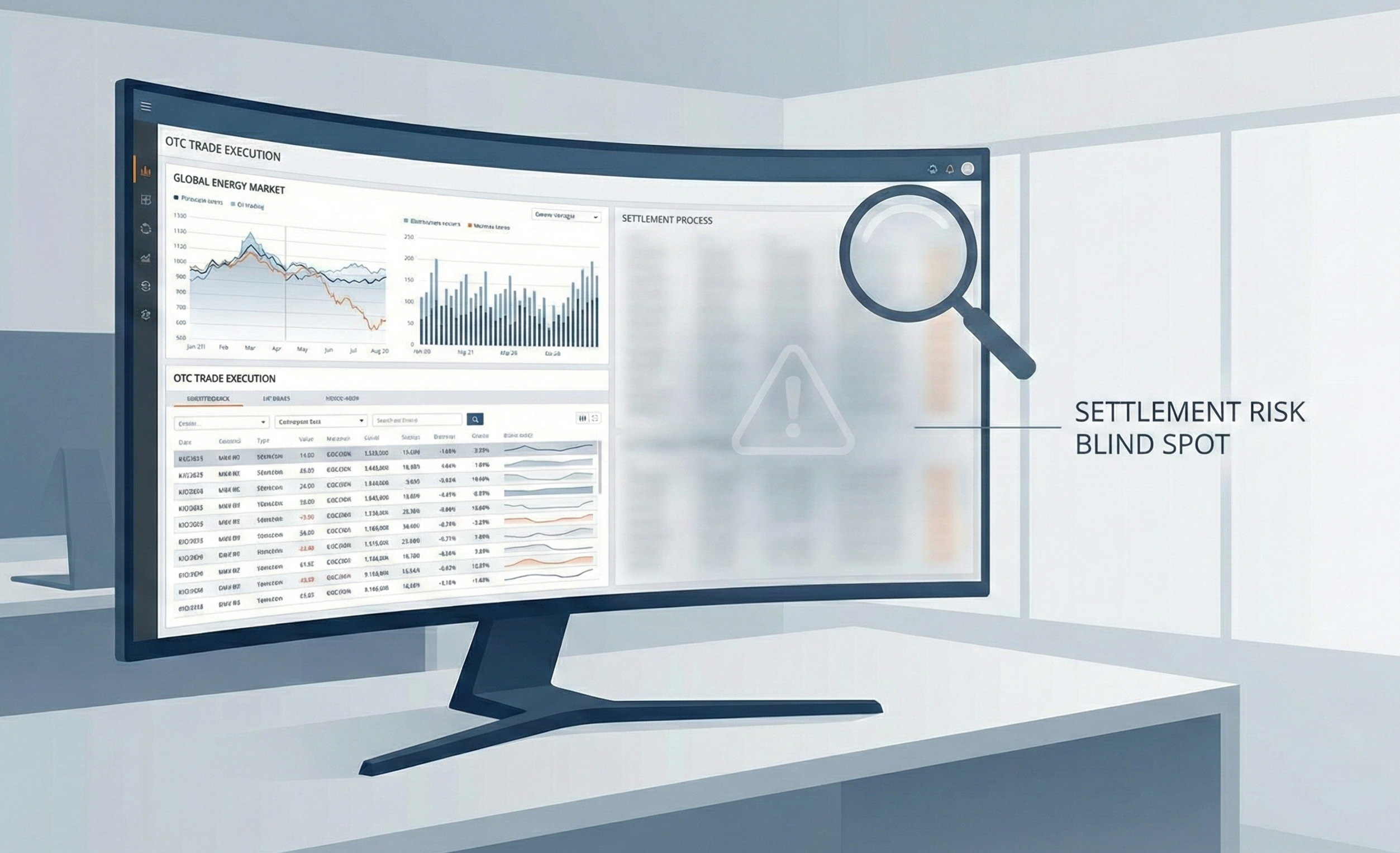Historic industry eSM milestone passed
Zürich, November 14, 2019 - History milestone passed. Last week a number of trading organizations performed electronic settlement for OTC trades at...
2 min read
Matthew Bush
:
May 28, 2025 1:36:07 PM

Summary:
- The impact of BATE on bilateral trading
Switzerland is at a pivotal point in its post-trade digitalisation journey. With regulations like BATE for the Swiss market, the rollout of mandatory e-Invoicing, and ongoing REMIT obligations, the market is rapidly shifting toward greater automation, transparency, and compliance.
These changes are more than just compliance checkboxes – they present an opportunity to modernise outdated processes, reduce operational risk, and create efficiencies across confirmations, settlements, and regulatory reporting.
BATE: Raising the Bar for Bilateral Trading
BATE came into force on January 1, 2025, introducing a new regulatory layer for companies engaged in bilateral trading in Switzerland. Designed to enhance governance and transparency, the regulation requires market participants to maintain clear audit trails, structured trade data, and formalised documentation processes.
For many companies, BATE represents a turning point: an opportunity to move away from manual, email-based workflows and embrace more integrated, secure post-trade solutions. While the new obligations bring challenges, they also present a chance to streamline operations, reduce operational risk, and build a more scalable post-trade infrastructure.
e-Invoicing: Readiness Is Everything
As of January 1, 2025, structured electronic invoicing became mandatory for VAT-registered businesses in Switzerland. Companies must now be able to receive and process structured e-invoices.
Market participants are already benefiting from:
Digitising invoice workflows also lays the foundation for scaling operations without increasing back-office headcount, which is especially valuable in volatile markets. While some businesses were prepared, others are now playing catch-up - facing delays, mismatches, and workflow gaps. The most efficient firms have fully integrated e-invoicing into their trade lifecycle, enabling faster dispute resolution, clearer cash positions, and reduced reconciliation efforts.
At Fidectus, we understand the complexities that come with these changes. Our expertise in electronic settlement management (eSM) allows us to help clients navigate the e-Invoicing transition with ease. By digitising invoice receipt, payment processing, and agreements with counterparties, our solutions provide greater flexibility, compliance, and efficiency in managing invoicing workflows.
REMIT: Increased expectations, rising pressure
REMIT obligations continue to demand accurate, timely reporting of wholesale energy market transactions, and regulatory scrutiny is increasing this year. T+1 remains the standard for reporting standard contracts, but enforcement activities is intensifying with a sharper focus on data quality, completeness, and consistency.
Manual reporting is no longer sustainable. To stay compliant and audit-ready, many firms are turning to automated reporting solutions that integrate directly with trade and settlement systems. This helps minimise risk, reduce errors, and ensure alignment with evolving regulatory expectations across borders.
What’s next: a digital-first post-trade landscape
BATE, e-Invoicing, and REMIT are just the beginning. As digitalisation accelerates, we expect further developments in:
The companies that thrive will be those that don’t just meet regulatory requirements but use them as a launchpad for smarter, more scalable operations.
Join Us to Explore These Changes Further
Want to go deeper on how the Swiss and European post-trade landscape is evolving?
Join us at our upcoming Fidectus Summit, targeted at post-trade professionals across Europe, where industry experts will discuss regulatory shifts, best practices for digital adoption, and the future of confirmations, settlement, and compliance.
Register here to secure your spot and connect with peers navigating the same challenges.

Zürich, November 14, 2019 - History milestone passed. Last week a number of trading organizations performed electronic settlement for OTC trades at...
.jpg)
In early June, Zurich’s iconic FIFA World Football Museum played host to the annual Fidectus Summit, where over 40 energy trading professionals,...

This article is part of our a tw-part series that provides a comprehensive analysis of the settlement risk landscape within OTC energy markets,...